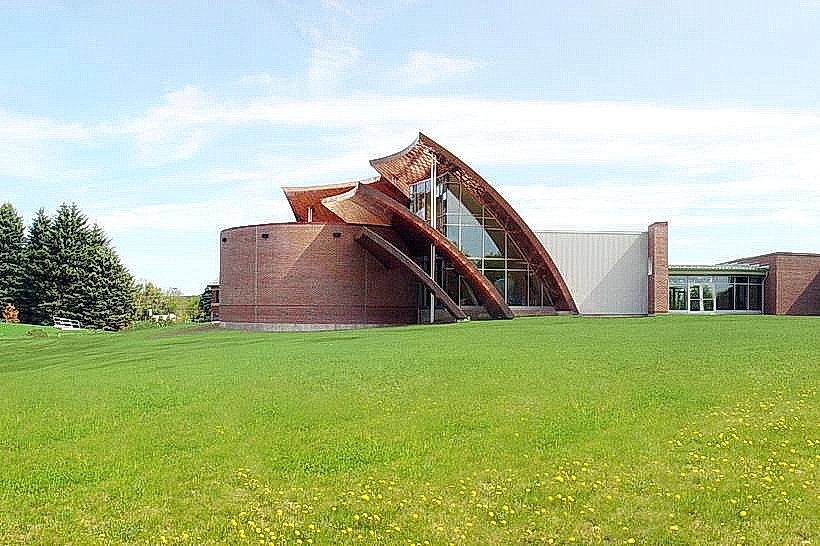Information
Landmark: Old Fort WesternCity: Augusta ME
Country: USA Maine
Continent: North America
Old Fort Western, Augusta ME, USA Maine, North America
Old Fort Western is a historic fort located in Augusta, Maine, USA.
It is the oldest surviving wooden fort in the United States.
Visual Characteristics
The fort is constructed primarily of wood, with timber palisades forming the outer walls. The main structure is a two-story blockhouse, painted a muted red. Other buildings within the palisade include a barracks and a storehouse. The overall architectural style reflects 17th-century colonial military construction.
Location & Access Logistics
Old Fort Western is situated at 100 Old Fort Western Drive, Augusta, Maine. It is approximately 1.5 km south of Augusta's city center. Access is via State Route 104 (Water Street). Ample parking is available on-site. Public transport options include Augusta's local bus service; Route 3 stops within 0.5 km of the fort.
Historical & Ecological Origin
Construction of Old Fort Western began in 1697 under the direction of Captain John March. Its original purpose was to serve as a defensive outpost and trading post during King William's War, protecting English settlements from French and Native American forces.
Key Highlights & Activities
Visitors can explore the blockhouse, barracks, and storehouse. Interpretive exhibits detail the fort's history and the lives of its inhabitants. Costumed interpreters are often present to demonstrate historical crafts and daily routines. Guided tours are available during operating hours.
Infrastructure & Amenities
Restrooms are available on-site. Limited shaded areas are present within the fort grounds. Cell phone signal (4G) is generally reliable. Food vendors are not located directly at the fort, but are available in downtown Augusta within a 1.5 km radius.
Best Time to Visit
The best time of day for photography is generally mid-morning or late afternoon when the sun angle provides more defined shadows. The fort is typically open from May through October. Weather is most favorable for outdoor exploration during the summer months (June-August).
Facts & Legends
A unique historical detail is that Old Fort Western was never attacked during its operational period, despite being built during a time of significant conflict. It was later used as a storehouse and then fell into disrepair before its preservation efforts began.
Nearby Landmarks
- Maine State Museum (1.2km North)
- State House (1.8km North)
- Kennebec River Rail Trail (0.8km West)
- Fort Halifax Park (15km Northeast)










